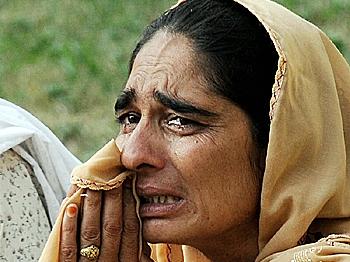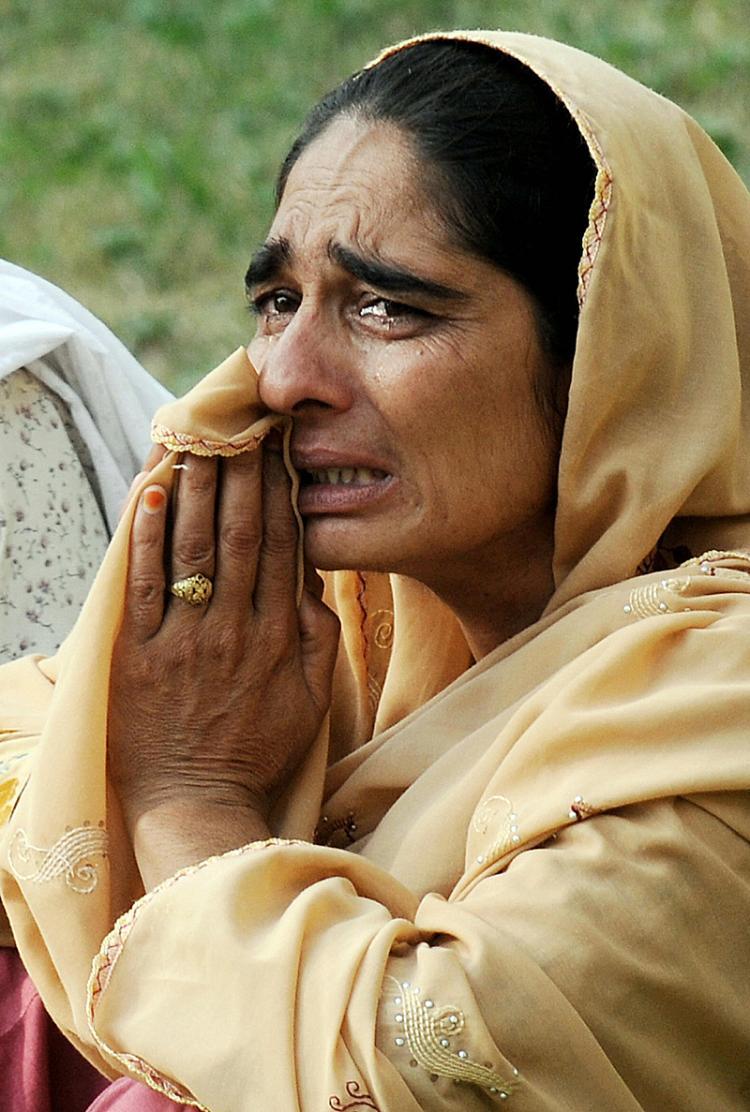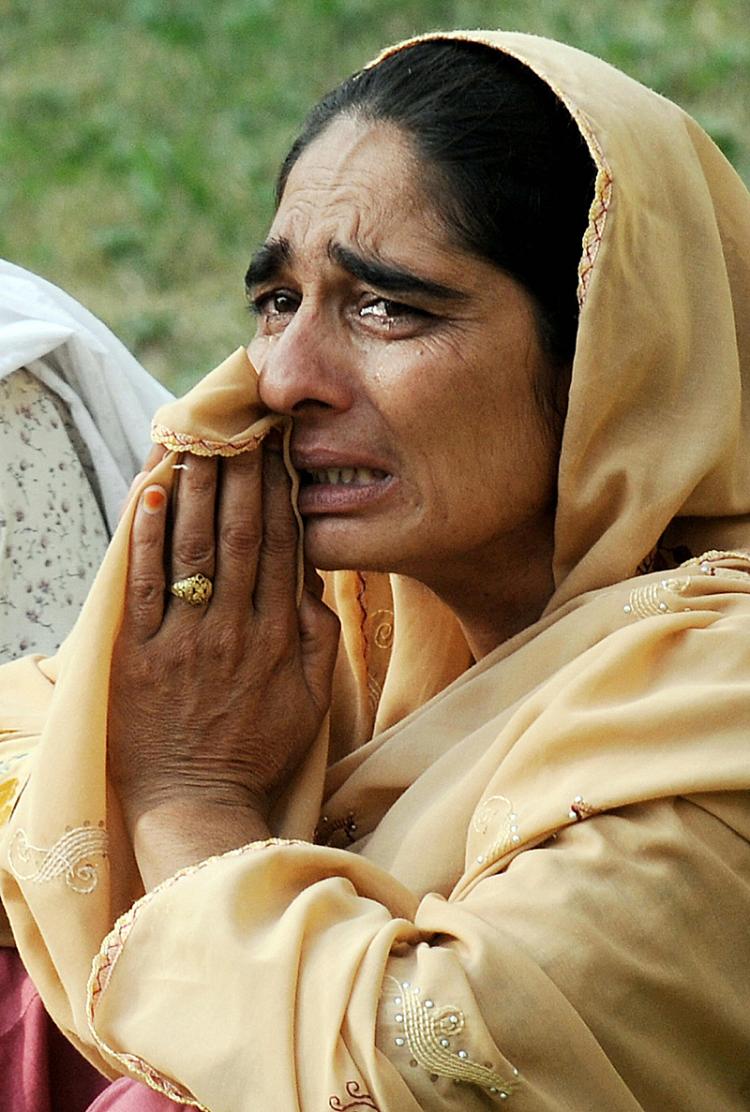Suicide Bombers in Pakistan Kill 70, Wound 100
A deadly blast near Pakistan’s Afghanistan border on Aug. 21 killed 70 people and injured about 100.

A Pakistani woman weeps for her injured relative after the suicide attack as she awaits for permission to visit him at the Pakistan Ordnance Factory hospital in Wah on Aug. 21. Farooq Naeem/AFP/Getty Images
|Updated:






